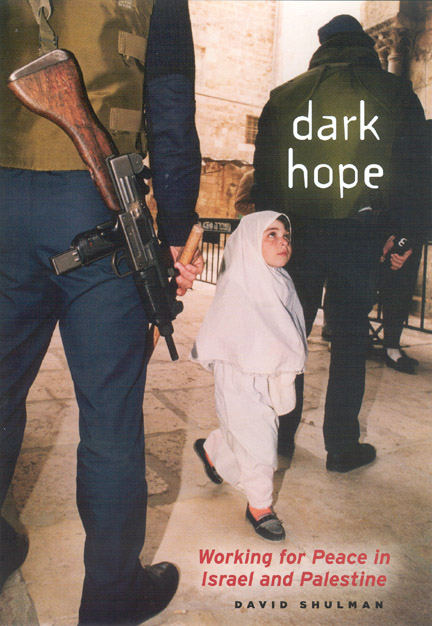Review: Shulman, Dark Hope

David Shulman’s Dark Hope: Working for Peace in Israel and Palestine is currently being featured in a review for the December 6 issue of the New York Review of Books. A human rights activist and member of the peace group Ta’ayush, Shulman is an active participant in the group’s efforts to address the conflict between Israel and Palestine through non-violent means. With Dark Hope Shulman aims to further the revolutionary humanitarian goals of the organization through a first hand account of his work with the group bringing aid, rebuilding houses, and engaging in Ghandian acts of civil disobedience. Detailing Shulman’s unique approach to political activism. Israeli scholar Avishai Margalit writes for the NYRB:
Shulman attended the Hebrew University of Jerusalem.… His linguistic and cultural interests were mainly focused on South India. In 1987, when he was thirty-seven, he received a MacArthur Fellowship. He has published many translations of Indian poetry. Shulman’s language in his diary is fresh and uncontaminated by the lazy clichés often used to describe the conflict between Israeli Jews and Palestinian Arabs. By temperament and calling, Shulman is a scholar, not a politician. Recalling Auden’s lines on Yeats, we may say that mad Israel hurt him into politics.
Into what sort of politics, one may ask. Shulman’s work on India and its culture suggests that his politics—if this is the term—would draw on Gandhi’s example. He writes, “We follow the classical tradition of civil disobedience, in the footsteps of Gandhi, Thoreau, and Martin Luther King.…”
Shulman advocates a Gandhian approach on moral grounds and perhaps also on practical grounds, and a large number of his activities would have pleased the Mahatma. But in my opinion he is trying to do something that can be accurately seen as part of the nonviolent struggle to alleviate the burdens of the occupation but is also different from it. Shulman is a moral witness…he makes an effort to observe and report on suffering arising from evil conduct. He may take risks in doing so, but he has a moral purpose: to expose the evil done by a regime that tries to cover up its immoral deeds. A moral witness acts with a sense of hope: that there is, or will be, a moral community for which his or her testimony matters.
Read an excerpt from the book.